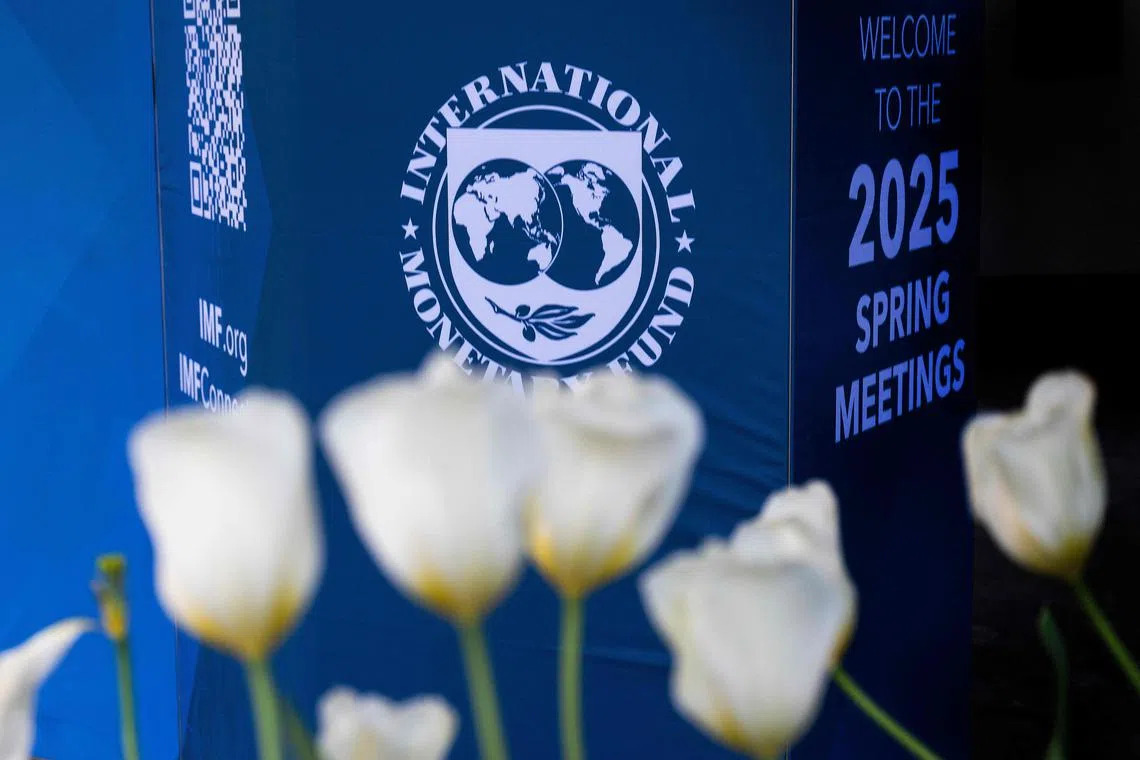Britain considers breaking $3.5 billion aid promise to the World Bank
Sign up now: Get ST's newsletters delivered to your inbox

Paring back Britain’s commitment to the World Bank would represent a sharp break from the past.
PHOTO: AFP
LONDON – Britain is considering scaling back its nearly £2 billion (S$3.51 billion) commitment to a World Bank fund for developing nations, according to people familiar with official plans, in a move that could see it slash aid alongside Mr Donald Trump’s White House.
The Labour government pledged £1.98 billion in November 2024 to the International Development Association (IDA), a unit of the World Bank that provides grants and low interest loans to the poorest countries.
However, three months later ministers changed tack, raiding Britain’s foreign aid budget to pay for higher military spending as the US started restricting support for Ukraine’s defence against Russia.
As a result, Britain is looking into knocking hundreds of millions of pounds off its contributions to the IDA. Earlier in April, Mr Stephen Doughty, a minister in the Foreign, Commonwealth and Development Office (FCDO), told Parliament in a written statement that the potential impact of the aid cuts on the IDA were “being worked through”.
Paring back Britain’s commitment to the World Bank would represent a sharp break from the past. The Labour government of 1997 to 2010 was at one point the biggest IDA donor as former chancellor of the exchequer Gordon Brown made development one of the party’s key priorities.
Nearly US$24 billion was committed to the IDA by donor countries just a few months ago, but the final figure is now in doubt.
The US is expected to reduce its US$4 billion pledge, made under former president Joe Biden, with Mr Trump ordering a review of the country’s relationship with global institutions such as the World Bank. Last week, Ireland and Italy confirmed their pledges to the IDA.
Two World Bank officials said they were unaware that Britain was reconsidering its commitment. An FCDO spokesperson declined to comment.
Britain’s £1.98 billion IDA commitment, which would be disbursed over three years, was a 40 per cent increase on the previous pledge.
At the time, then Development Minister Anneliese Dodds said it showed “Britain is back with a voice on the world stage”, but Ms Dodds resigned in February in protest at the aid cuts. She was replaced by Ms Jenny Chapman, a long-standing ally of Prime Minister Keir Starmer.
Ms Chapman has put the entire budget under urgent review and even priorities such as the IDA may be unable to escape budget cuts, people said.
Aid to defence
The United Nations recommends countries spend 0.7 per cent of gross domestic product on aid, which the last Conservative government did until 2020 when the budget was cut to 0.5 per cent in the light of the pandemic. Labour has now cut it to 0.3 per cent from 2027, which amounts to £9.2 billion in 2027 – a £6.1 billion reduction from 2023. The money will be spent on the armed forces, instead.
Mr Starmer said in February that the cut to international aid was “not an announcement I am happy to make”. The Prime Minister faced criticism for the decision from the left wing of his party, but was given enough support from MPs who argued that defending Europe from Russian President Vladimir Putin takes precedent over foreign aid.
The squeeze on aid projects is even more intense due to the cost of hosting refugees, which comes out of Britain’s development budget. An estimated £2.5 billion is already earmarked for housing asylum seekers in 2027, leaving less than £7 billion for humanitarian and development work.
The IDA is considered good value for money because the World Bank can borrow roughly US$3 for every US$1 committed. The British government wants to maintain its full commitment to the IDA, but fears that would force it to cut back other programmes, such as those combating malaria and delivering vaccines in Africa. BLOOMBERG


